Art - Study Guide
What is Art?
Art is the expression or application of human creative skill and imagination, typically in a visual form such as painting or sculpture, producing works to be appreciated primarily for their beauty or emotional power.
Types of Art
- Visual Arts - Includes painting, drawing, sculpture, photography, and other visual media.
- Performing Arts - Encompasses dance, theater, music, and other forms of performance.
- Literary Arts - Involves writing, poetry, and storytelling.
- Applied Arts - Includes architecture, graphic design, fashion design, and industrial design.
Elements of Art
- Line - A mark with greater length than width.
- Shape - A closed line that can be geometric or organic.
- Color - The visual perceptual property corresponding in humans to the categories called red, blue, yellow, etc.
- Form - A three-dimensional geometrical figure.
- Texture - The tactile quality of a surface or the representation of it in art.
- Space - The area around, within, or between images or parts of an image.
- Value - The lightness or darkness of tones or colors.
Famous Artists
Some of the most renowned artists in history include:
- Leonardo da Vinci
- Vincent van Gogh
- Pablo Picasso
- Claude Monet
- Michelangelo
- Georgia O'Keeffe
Art Movements
Throughout history, various art movements have emerged, each with its own unique style and philosophy. Some notable art movements include:
- Renaissance
- Impressionism
- Cubism
- Surrealism
- Pop Art
- Abstract Expressionism
Art Appreciation
When studying art, it's important to practice art appreciation by observing, analyzing, and interpreting works of art to gain a deeper understanding of their meaning and significance.
Conclusion
Art is a diverse and enriching field that offers a multitude of opportunities for creative expression and cultural exploration. By studying the different forms of art, its elements, and the contributions of famous artists, one can develop a greater appreciation for the beauty and impact of artistic endeavors.
.◂Science Worksheets and Study Guides First Grade. Earth's resources
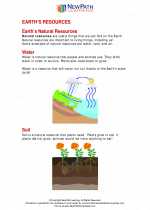
 Worksheet/Answer key
Worksheet/Answer key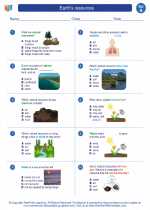
 Worksheet/Answer key
Worksheet/Answer key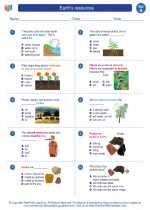
 Worksheet/Answer key
Worksheet/Answer key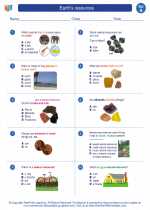
 Vocabulary/Answer key
Vocabulary/Answer key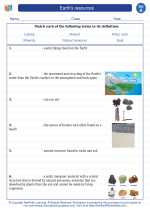
 Vocabulary/Answer key
Vocabulary/Answer key
